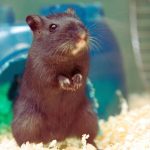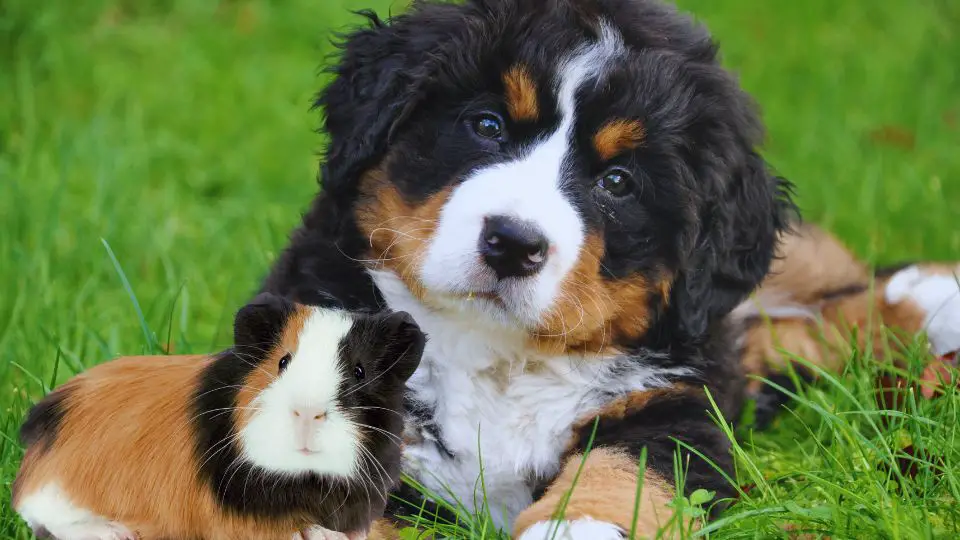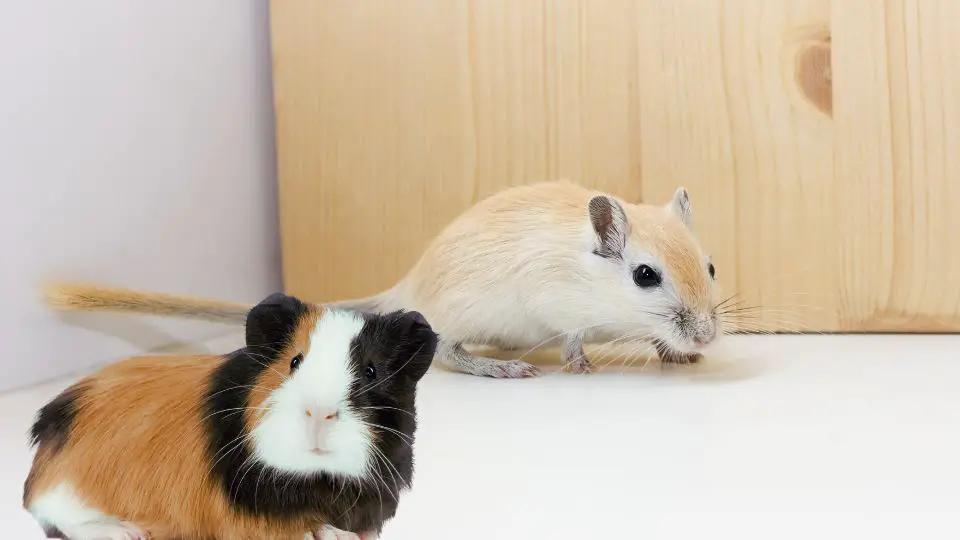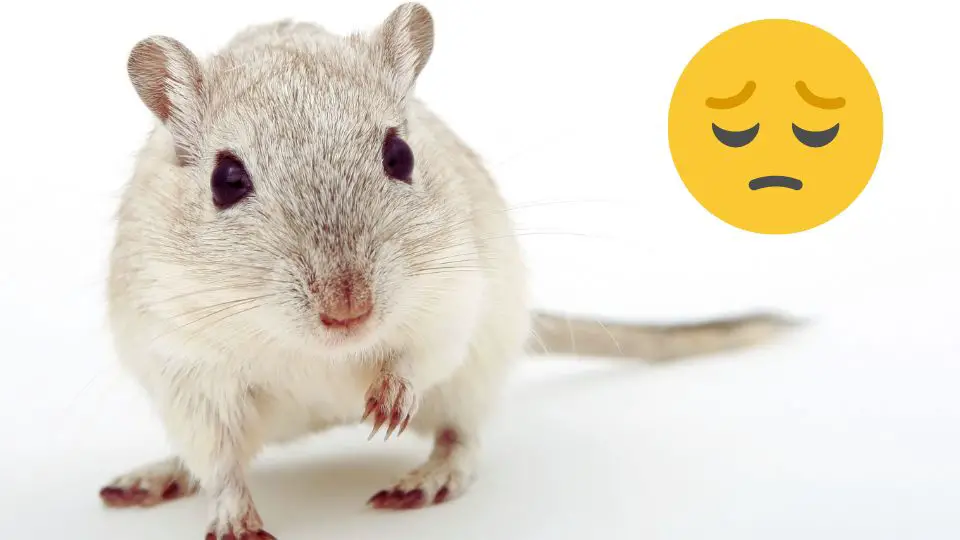Are you looking to provide your gerbil with a homemade and nutritious diet? Making your own gerbil food can be a rewarding and beneficial way to ensure that your furry friend receives a variety of fresh and healthy ingredients.
By preparing their food at home, you have control over the ingredients and can tailor the mix to suit your gerbil’s specific nutritional needs.
In this article, we will guide you through the process of making gerbil food and offer tips for creating a well-balanced diet for your beloved pet.
Can I make my own gerbil food?
Yes, you can make your own gerbil food! Many gerbil owners choose to create homemade mixes to provide their gerbils with a variety of nutritious ingredients. Making your own gerbil food allows you to have more control over the ingredients and ensure that your gerbil receives a balanced diet.
You have to keep the mix stored in an airtight container in a cool, dry place to maintain freshness and prevent spoilage. Offer a small handful of the homemade mix as part of your gerbil’s daily food intake and monitor their weight and overall health to ensure they are thriving on the diet.
Remember, it’s always a good idea to consult with a veterinarian experienced in small animal care for guidance and to ensure that the homemade mix meets your gerbil’s specific nutritional needs.
Gather the Ingredients
When it comes to preparing homemade food for your gerbil, gathering the right ingredients is key to providing a nutritious and well-rounded diet. Ensuring that the ingredients are fresh and of good quality is essential for your gerbil’s health and well-being. Here is a list of essential ingredients to consider for homemade gerbil food:
- Grain Mix or Gerbil Pellet: Choose a suitable base for the food, such as a commercial grain mix specifically formulated for gerbils or gerbil pellets. These provide essential nutrients and a balanced foundation for the homemade food.
- Protein Sources: Include protein-rich ingredients to support your gerbil’s growth and overall health. Dried mealworms, small amounts of cooked meat (chicken, turkey, or beef), or commercially available gerbil protein treats can be added to the mix.
- Fresh Vegetables: Add a variety of fresh vegetables to provide vitamins, minerals, and fiber. Good options include carrots, broccoli, bell peppers, kale, spinach, and cucumber. Wash the vegetables thoroughly before use.
- Fresh Fruits: Offer small portions of fresh fruits to provide natural sugars, vitamins, and antioxidants. Suitable fruits for gerbils include apples, pears, bananas, berries, and melons. Remove any seeds or pits and cut them into small, bite-sized pieces.
- Seeds and Nuts: Incorporate a mixture of seeds and nuts to provide healthy fats and additional nutrients. Sunflower seeds, pumpkin seeds, flaxseeds, and chia seeds are all great options. Avoid giving large amounts of nuts due to their high fat content.
Remember to introduce new ingredients gradually to your gerbil’s diet, observing any adverse reactions or digestive issues. Additionally, always wash fruits and vegetables thoroughly to remove any pesticides or chemicals before offering them to your gerbil.
Prepare the Base
Here’s how to prepare the base for your homemade gerbil food, following the instructions on the packaging:
- Read the Instructions: Carefully read the instructions provided on the packaging of the grain mix or gerbil pellet. Different brands may have varying recommendations for preparation, so it’s important to follow their specific guidelines.
- Measure the Amount: Use a measuring cup or scale to measure the appropriate amount of the grain mix or gerbil pellet. The recommended quantity may vary based on your gerbil’s age, weight, and activity level.
- Follow Water Guidelines: Check the packaging for instructions on whether to moisten the base with water. Some grain mixes or gerbil pellets may require the addition of water to soften and enhance palatability. Follow the recommended water-to-food ratio provided.
- Mix Thoroughly: If instructed to add water, pour the recommended amount into a separate container. Gradually add the water to the grain mix or gerbil pellet, stirring thoroughly until the moisture is evenly distributed. The base should be moistened but not soggy.
- Allow to Sit: Depending on the instructions, you may need to let the base mixture sit for a few minutes before serving it to your gerbil. This allows the grains or pellets to absorb the moisture and become more palatable.
The measurements for a good combination of food for gerbils can vary based on factors such as their age, weight, activity level, and specific dietary needs. It’s essential to provide a balanced mix of nutrients to support their overall health and well-being. Here are some general guidelines to consider when combining different ingredients for your gerbil’s food:
- Base Mix or Pellet: Start with the recommended serving size of the grain mix or gerbil pellet as mentioned on the packaging. This typically ranges from 1-2 tablespoons per gerbil per day. Adjust the quantity based on your gerbil’s individual needs and consult a veterinarian if necessary.
- Seeds and Grains: Add a small amount of seeds and grains to the base mix. This can include options like sunflower seeds, pumpkin seeds, flaxseeds, oats, or wheat germ. It’s best to include these in moderation as they are high in fat and should not exceed 10-15% of the total food volume.
- Fresh Vegetables and Fruits: Incorporate fresh vegetables and fruits into your gerbil’s diet. Offer small amounts of safe options such as carrots, broccoli, cucumber, apple, or pear. These should be chopped into small, bite-sized pieces. Vegetables and fruits should constitute around 10-15% of their daily food intake.
- Hay: Provide a small amount of hay as a source of fiber. Timothy hay or meadow hay is suitable for gerbils and helps support their digestive health. Hay should be available at all times for nibbling.
- Treats: Occasionally, you can offer gerbil-safe treats in small portions. These can include dried fruits, mealworms, or specially formulated gerbil treats. Treats should be given sparingly and should not exceed 5% of their total food intake.
Add Protein and Vegetables
Adding protein and vegetables to your gerbil’s diet is essential for providing a well-rounded and nutritious meal. Here are some guidelines on how to incorporate protein and vegetables into your gerbil’s food:
Include a Source of Protein
Protein is an important component of a gerbil’s diet as it supports growth, muscle development, and overall health. You can add a source of protein such as dried mealworms or small amounts of cooked meat. Ensure that any meat given is boneless, cooked thoroughly, and free from seasoning or spices. Protein-rich foods should be offered in moderation, constituting about 5% of their total food intake.
Add a Variety of Fresh Vegetables
Fresh vegetables are a great addition to your gerbil’s diet as they provide essential vitamins, minerals, and fiber. Offer a variety of vegetables such as carrots, broccoli, leafy greens (e.g., spinach or kale), bell peppers, or zucchini. Wash the vegetables thoroughly and chop them into small, manageable pieces. Vegetables should make up approximately 10-15% of their daily food intake.
Fruits and Seeds
A. Include small portions of fresh fruits, such as apples or berries
B. Add a mixture of seeds, such as sunflower seeds or pumpkin seeds, for additional nutrients
Mix and Store the Food
Incorporating fruits and seeds into your gerbil’s diet can provide additional nutrients and variety. Here are some tips on including fruits and seeds in your gerbil’s food:
Include Small Portions of Fresh Fruits
Fresh fruits can be a tasty and nutritious addition to your gerbil’s diet. Offer small portions of fruits such as apples, berries (such as blueberries or strawberries), or small pieces of melon. Fruits should be offered sparingly due to their higher sugar content. Limit fruit intake to about 5% of their total food intake to prevent excessive sugar consumption.
Add a Mixture of Seeds
Seeds can provide essential fats, proteins, and other nutrients for your gerbil. Include a mixture of seeds such as sunflower seeds, pumpkin seeds, flaxseeds, or chia seeds. These can be offered in small quantities, constituting around 5-10% of their daily food intake.
Recommended diet and food schedule
Here’s an example of a balanced gerbil diet and food schedule that we recommend you in order to provide you with a guideline for feeding your gerbil:
- Base Diet: Offer a high-quality gerbil pellet or grain mix as the foundation of your gerbil’s diet. Follow the instructions on the packaging for the recommended daily amount. This should make up the majority of their food intake.
- Fresh Vegetables: Provide a variety of fresh vegetables daily. This can include small pieces of carrots, broccoli, spinach, or kale. Aim to offer a mix of vegetables to ensure a range of nutrients. Offer a small portion, approximately the size of your gerbil’s head, once a day.
- Protein: Include a source of protein in their diet a few times a week. This can be in the form of dried mealworms, small amounts of cooked meat (e.g., chicken or turkey), or insects specifically formulated for small animals. Protein should make up about 5% of their total food intake.
- Fruits and Seeds: Offer small amounts of fresh fruits as occasional treats, about once or twice a week. This can include slices of apple or small pieces of berries. Additionally, include a mixture of seeds such as sunflower seeds, pumpkin seeds, or flaxseeds a few times a week. Fruits and seeds should make up about 5-10% of their total food intake.
- Water: Ensure fresh, clean water is available at all times. Use a water bottle or a shallow dish that is securely attached to the enclosure to prevent spills or contamination. Change the water daily to maintain its freshness.
Food Schedule
- Base Diet (gerbil pellet or grain mix): Offer a small handful in the morning and evening.
- Fresh Vegetables: Offer a small portion of fresh vegetables once a day.
- Protein: Provide a protein source (dried mealworms, cooked meat, or insects) a few times a week.
- Fruits and Seeds: Offer small amounts of fruits and seeds as occasional treats, once or twice a week.
- Water: Check and refill the water bottle or dish daily.
Conclusion
By making your own gerbil food, you have the opportunity to provide your furry friend with a wholesome and diverse diet. The combination of grains, protein sources, fresh fruits, and vegetables ensures that your gerbil receives the essential nutrients they need to thrive.
Remember to introduce any new foods gradually and monitor your gerbil’s health and weight to ensure they are responding well to the homemade diet. If you have any concerns or questions, consult with a veterinarian experienced in small animal care. With a little effort and creativity, you can provide your gerbil with a delicious and nutritious diet that promotes their overall well-being.







